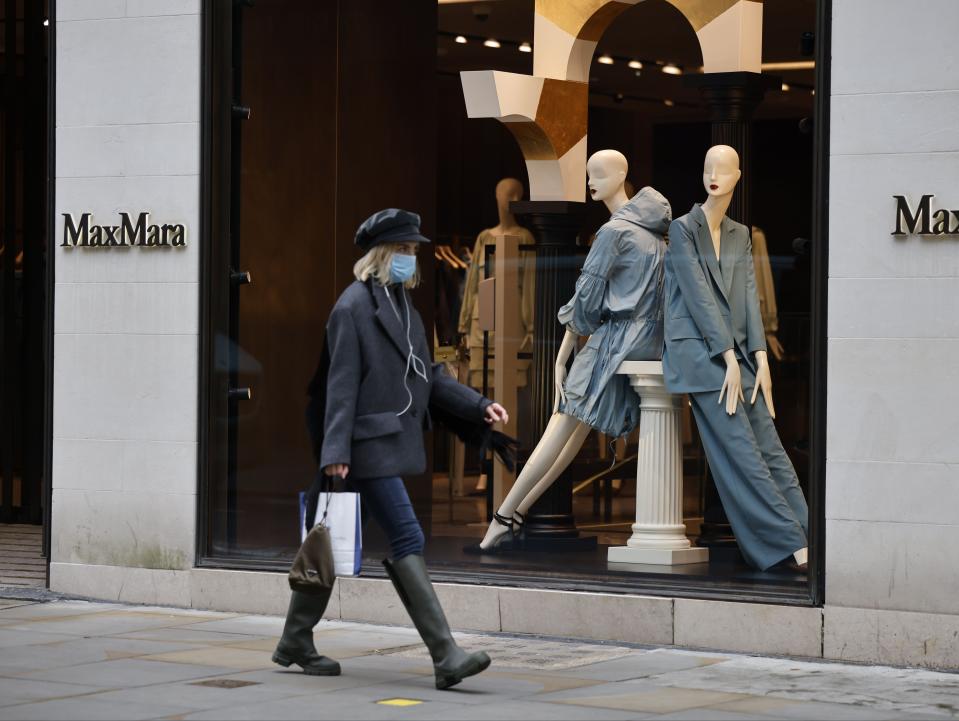Weekly Covid cases in England at lowest level since September, figures show

Weekly coronavirus cases in England have fallen to their lowest levels since September, new figures have shown, while Matt Hancock has said he is more optimistic than ever for a “great British summer”.
Infection rates are also continuing to fall across all regions and in every age group in the country, according to the latest surveillance report from Public Health England (PHE).
Coupled with the ongoing success of the UK’s vaccine rollout, which has seen more than 20 million people receive a first dose, lockdown has also helped to drive down hospital admissions and deaths throughout the four nations.
There are currently 12,136 people in hospital with Covid-19 in the UK – a significant fall from the peak of the winter wave, though health officials have warned that the NHS still remains under pressure.
With Britain making sustained progress in shrinking its epidemic, the health secretary has said he remains confident that restrictions will be lifted to allow domestic travel this summer.
“I very much hope that as we are able to lift restrictions, then we are all able to travel across the UK,” Mr Hancock said during a visit to a laboratory in Glasgow.
“One of the factors that we have to be vigilant about in that roadmap is the emergence of new variants, in case the current vaccines are not as effective.
“I’ve said before that I’m optimistic for a great British summer and I’m now more optimistic about having a great British summer than I have been at any time, thanks to the speed and the effectiveness of the vaccine rollout.”
In England, a total of 68,738 people tested positive for Covid-19 at least once in the week to 24 February, according to the latest Test and Trace data.
This was down 19 per cent on the previous week and is the lowest number since the week to 30 September.
Of the 69,129 people transferred into the tracing system, 88.5 per cent were reached and asked to provide details of recent close contacts.
According to PHE’s most recent surveillance report, in the East Midlands, the rate of new cases stood at 120.8 per 100,000 people in the seven days to 28 February, the highest rate of any region, but down from 170.5 the previous week.
Yorkshire and the Humber recorded the second highest rate at 113.6, down from 154, while southwest England reported the lowest figure of 43.2 cases per 100,000.
For age groups, the highest rate is among 30- to 39-year-olds, at 121.1 cases per 100,000 people, having fallen from 178.3. Among 20- to 29-year-olds, the rate dropped from 161.3 to 111.3.
For people aged 80 and over, the majority of whom have received a first vaccine dose, the rate fell from 101.8 to 65, PHE said.
Dr Yvonne Doyle, the organisation’s medical director, called on the public “to keep going” in adhering to the current restrictions and rules.
“From next week the slow and gradual unlocking begins, therefore more than ever it is vital you follow the guidelines,” she said. “The virus has not gone away, and, as we have seen in the past, has the potential to return.
“The simplest way to keep infection rates down is to reduce your contacts but if you are seeing people from outside your household, keep your distance, wear a face covering if you are in a small space and wash your hands regularly. I urge you to keep going for the time being, it will save lives.”
Separate data from the NHS has shown that some 93.8 per cent of residents of older adult care homes received a jab by 28 February.
Residents are classed as eligible for the vaccine if they have not had Covid-19 in the previous 28 days.
The equivalent figure for staff of older care homes is 72.9 per cent – yet in London this figure stands at just 57.9 per cent.
Nationally, about one in five people aged 16 to 64 are now likely to have had their first dose, NHS England figures showed.
The figures came after the chancellor said it was “too early” to say whether the government could support rolling out vaccine passports, while a review is under way.
Rishi Sunak admitted there are “various practical, legal and ethical issues” with asking people to prove they have either been vaccinated or tested negative for coronavirus before being permitted into venues or businesses.
Michael Gove, the Cabinet Office minister, is currently leading a review into whether bringing in “Covid status certificates” would help with reopening the economy once virus restrictions have been lifted after 21 June.
“We have not just ethicists but doctors and business people working together to look at that particular question, to consider all the issues in the round and come up with some recommendations in a few months' time,” said Mr Sunak.
Read More
Modified vaccines for new Covid variants to be fast-tracked in UK
Obesity linked to Covid-19 deaths: Inspiration and resources for people trying to lose weight
Boris Johnson appeals for vaccinated over-80s not to break Covid rules

 Yahoo Finance
Yahoo Finance 